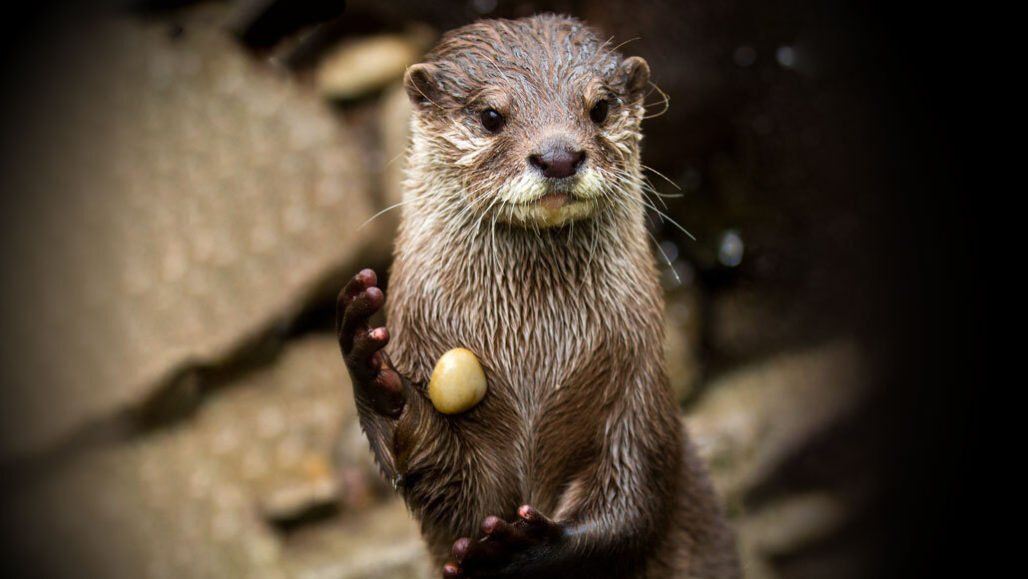An Otter Mystery! Why Do They "Juggle" Rocks?
Many marine mammal species including dolphins have been reported to "play", but one species activity that has intrigued scientists is that of otters who have been observed to shuffle stones back and fourth between their paws. Many theories have been presented that might explain this behaviour but recent research has debunked that it might serve to help them practice survival skills.
The evolution of play behaviour has long fascinated biologists, in both animals and humans. Play behaviour has only recently been given objective criteria to determine a repeated seemingly non-functional behaviour. Play can be energetically costly and to date over 30 hypothesis have been proposed in an effort to explain play in animals. Among these, three primary forms of play have been identified - locomotor, social and object play.
Locomotory play involves a solitary behaviour engaging in intense or sustained body movement -aiding in motor development. Social play includes all play behaviour directed towards other animate beings - aiding in the formation of social bonds and influence dispersal patterns in adults and often features locomotor elements. Object play refers to the apparent non-functional manipulation of inanimate items when an animal is in a relaxed state. In juveniles, play may serve as a means to learn survival skills, however in adults, object play remains little understood.
New research published today May 6th 2020 in Royal Society Open Science
led by animal behaviourist Mari-Lisa Allison from the University of Exeter has shown that otters "juggling" rocks was not linked to enhancing foraging skills. While the term "juggling" may be anthropomorphising the behaviour as otters don't keep rocks flying around in a circle like a circus act, they do shuffle stones quickly between their paws in close proximity to their bodies. Asian small clawed otters ( Aonyx cinerea
) are the smallest of the world's 13 species of otters, and small coated otters ( Lutragale perpicillata
) have been observed to be "very playful" and "juggle" rocks, however small coated otters feed on fish that do not the plucking of food or cracking of shells to eat mollusks. In comparison, the closely related Asian small clawed otter often perform extractive foraging to exploit crabs and shellfish.
Through a series of tests, the researchers assessed if Asian small clawed otters were better at extractive foraging puzzles in comparison to small coated otters. They found that juvenile and senior otters juggled rocks more frequently, however it did not differ between the species or the sexes. However, otters did juggle more often when they were hungry, but asian small clawed otters did not solve the puzzles any faster than the fish eating small coated otters.
The findings suggest that rock juggling may be a misdirected behaviour when hungry and while it may serve to improve juvenile motor skills, it appeared unrelated to foraging skills in adults. Regardless of their difference in feeding styles, the new study showed that both species were equally capable of extracting food out of challenging objects and rock play didn't seem to matter in learning a new life skill. Therefore, otters may be juggling rocks out of enjoyment, boredom or both!
© Ocean Research & Conservation Ireland (O.R.C.Ireland) and www.orcireland.ie , est. 2017. If you like our blogs on the latest news in marine science and would like to support our work, visit www.orcireland.ie to become a member, to volunteer or to make a donation today. This article has been composed based on credible sources.
SHARE THIS ARTICLE














